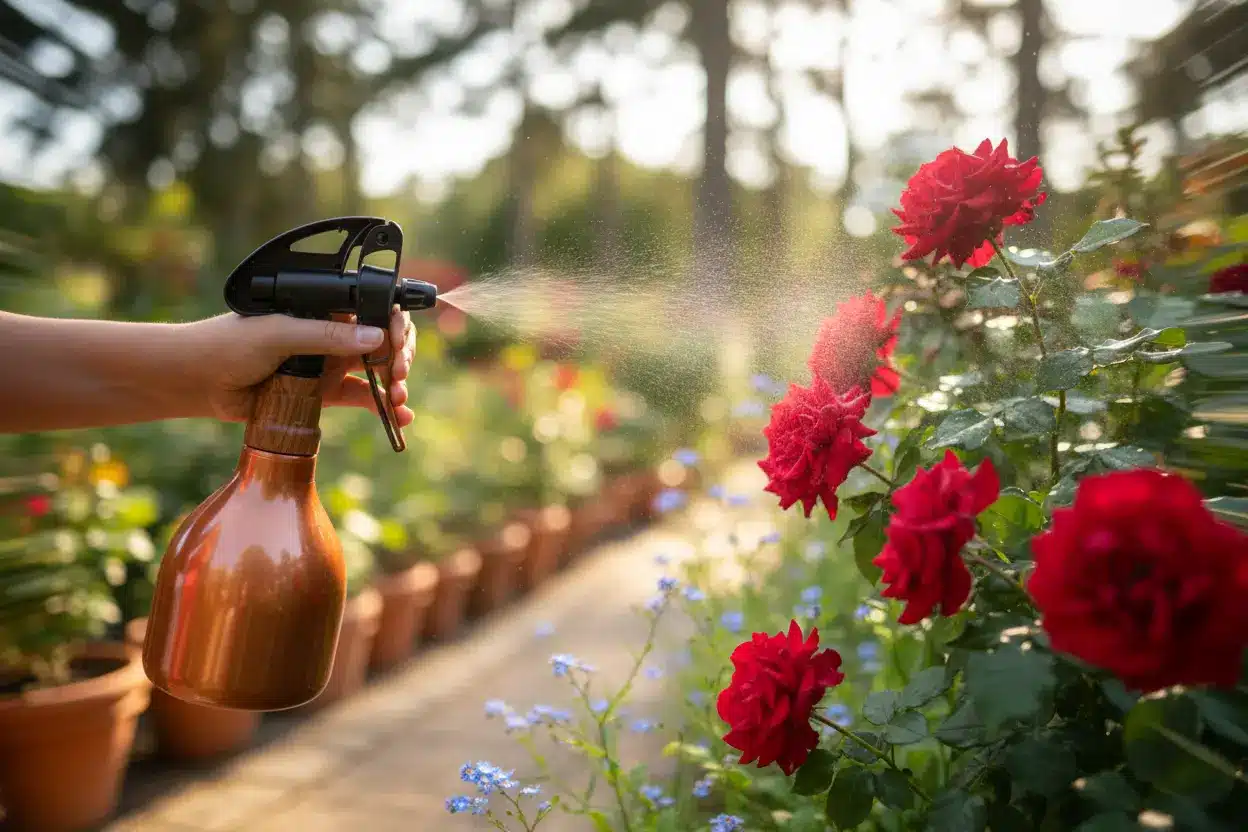What if we told you the secret to a healthy, pest-free garden isn’t locked inside a pricey bottle from the gardening aisle or whispered by an old neighbor with mysterious green thumbs—but is, in fact, already right in your kitchen? No, it’s not your grandma’s soup recipe or a magic chant over your tomato plants. We’re talking about rapeseed oil—a true backyard superhero hiding in plain sight, ready to swoop in where chemical pesticides can’t!
Why France Banned Chemical Pesticides—and What You Can Do Instead
Since the start of 2023, French homeowners have been strictly forbidden from using chemical pesticides. A little daunting at first? Maybe. But worry not! Nature is more generous than you think. There are plenty of natural alternatives—solutions that are just as effective as their chemical cousins (sometimes even more!), while keeping the environment, your health, and your wallet much happier. Among these unsung heroes, one humble ingredient stands out, loaded with perks for gardeners everywhere: rapeseed oil.
The Secret Powers of Rapeseed Oil
If you’ve only ever seen rapeseed oil pop up in salad dressings, brace yourself for a plot twist worthy of a garden mystery novel. This oil is packed with fongicide, acaricide, and ovicide powers—translation: it doesn’t just tackle mushrooms and molds, it’s tough on bugs and even their eggs and larvae. Rapeseed oil makes short work of the worst plant invaders, including:
- Aphids
- Scale insects
- Mites
- Whiteflies
How does it work? The oil suffocates these pests—even at their egg and larva stage—while protecting your plants from potential fungal damage. It’s an eco-friendly force field!
Safe for Plants, People, and the Planet
Get this: unlike horticultural and mineral oils, rapeseed oil doesn’t come from petroleum. So you won’t be pouring fossil fuel leftovers onto your flowers. Rapeseed oil is gentle on local wildlife, pollinators, and the broader ecosystem. No harm to animals, plants, humans, or even your conscience! That makes it the dream ally for anyone cultivating a bio and eco-friendly garden. If you’re already picturing your neighbors peeking jealously over the hedge… you’re probably right.
Using Rapeseed Oil: How to Get It Right (and Avoid Garden Drama)
You’ll easily find commercial insecticides based on rapeseed oil ready to use. If you like some DIY magic, whipping up your homebrew is possible—just make sure to stick to the right steps. Here’s what you need to know:
- Never apply pure oil directly onto your plants or you could burn them (ouch!).
- Always respect recommended doses whether you buy ready-made or prepare your own mix.
- Black soap is another effective insecticide, handy against aphids, whiteflies, and scale insects.
- Spritz your homemade insecticide on the entire plant until thoroughly coated.
- Test first: try your mixture on a small part of the plant to check if it’s well-dosed.
- Apply early morning or after sunset (nobody wants a sunburned plant!).
- If infestation persists, repeat after a week.
Careful though: never use this blend on fruit trees in bloom—they just can’t handle it. Follow these steps and your plants will thank you.
But wait—there’s more! Rapeseed also moonlights as a green fertilizer if you add it to soil at the end of winter. And if your rusty tools are making you sigh, once a year cover them in pure rapeseed oil to protect them. That’s more uses than your average kitchen staple, wouldn’t you say?
And as storms roll across France, rainwater recovery is being encouraged. If you plan to collect rainwater (always handy, especially after a heavy storm!), make sure you do it right to dodge fines or unfortunate blunders. Check out a reliable guide to get started safely and legally.
To sum up: If you haven’t yet welcomed rapeseed oil into your gardening arsenal, now’s the time. In the age of chemical bans and eco-awareness, it’s not just a safe and powerful alternative—it’s practically a revolution in a bottle. Ready to let your kitchen staple take a starring role outside?

John is a curious mind who loves to write about diverse topics. Passionate about sharing his thoughts and perspectives, he enjoys sparking conversations and encouraging discovery. For him, every subject is an invitation to discuss and learn.






